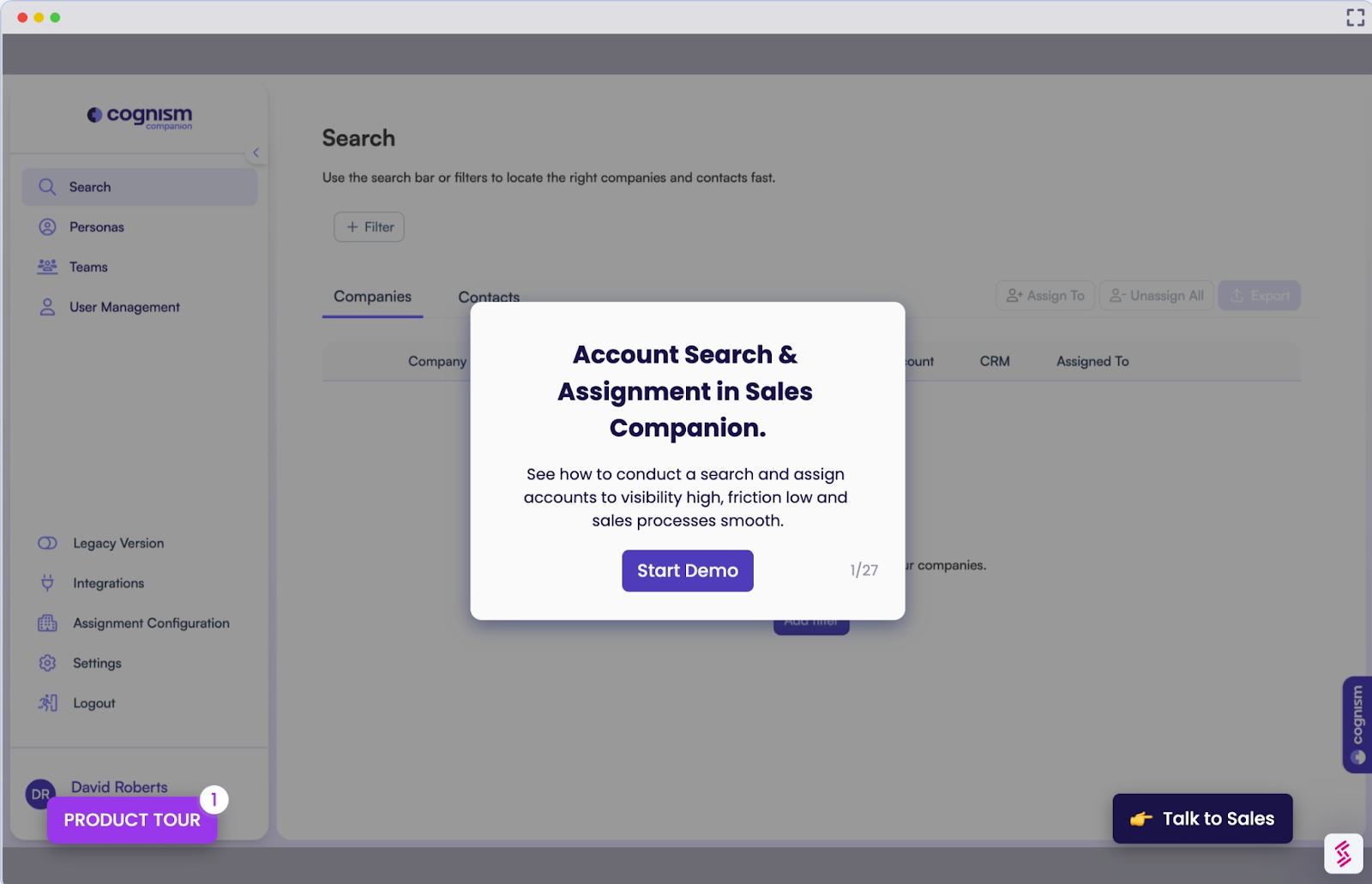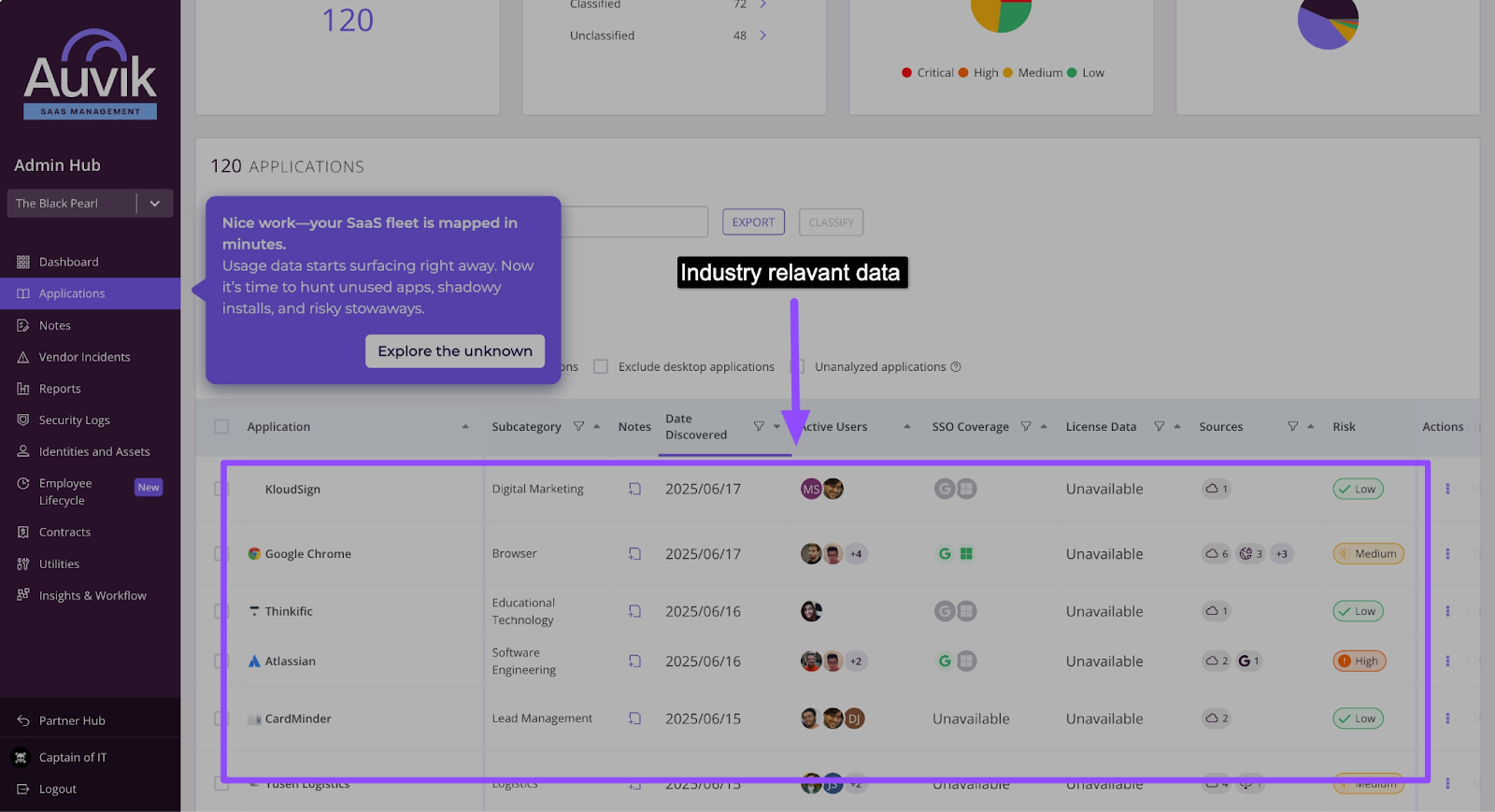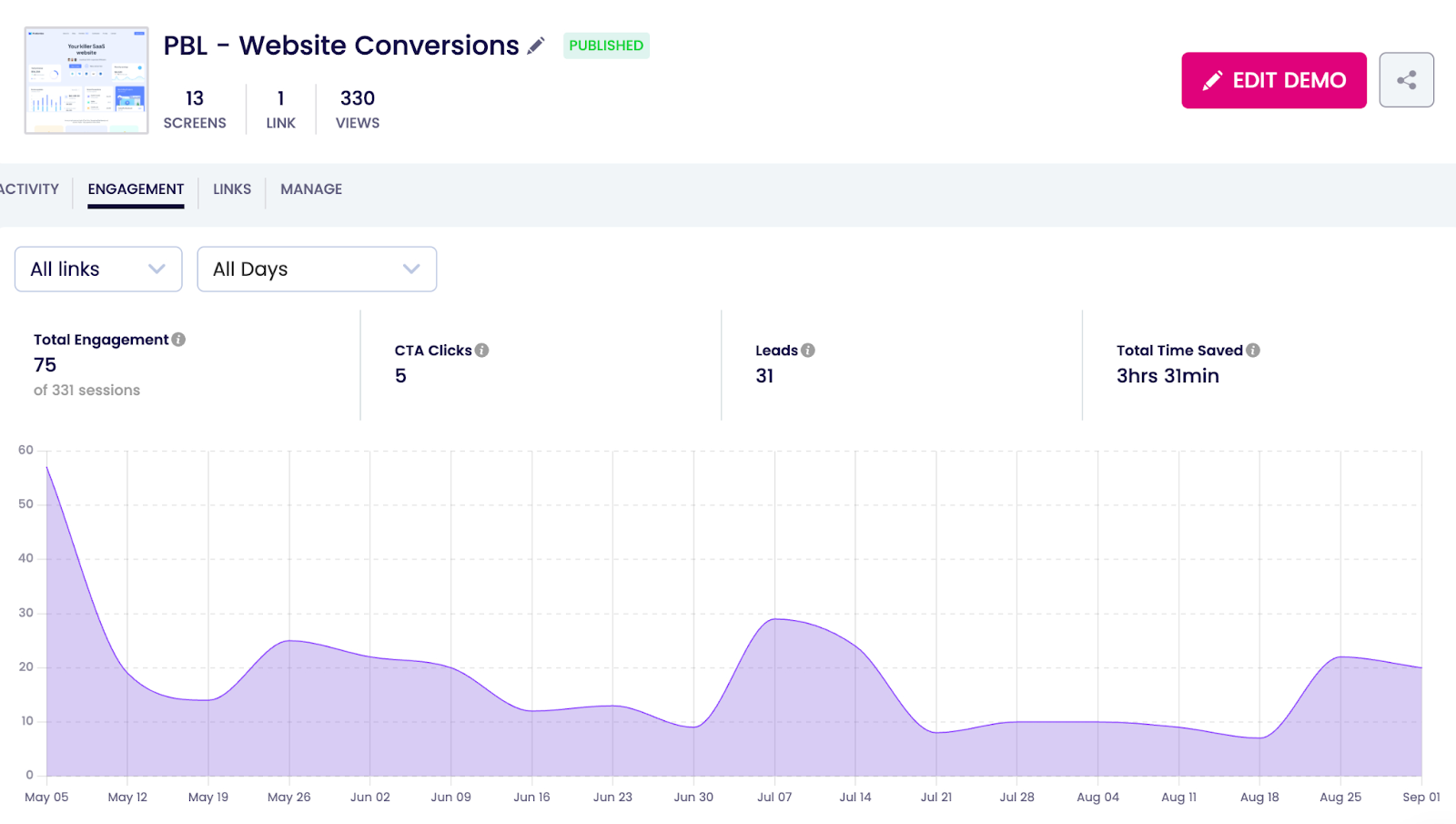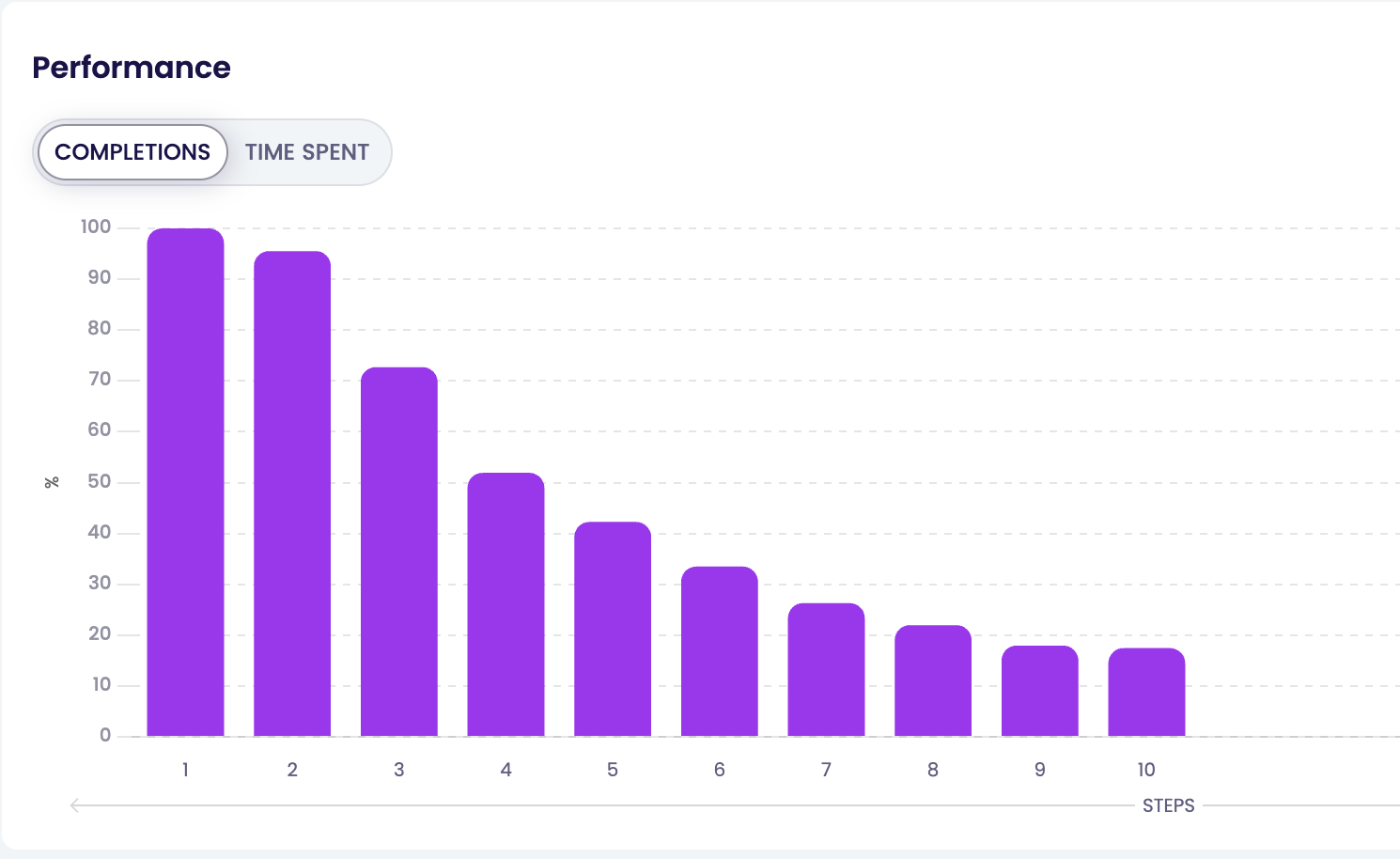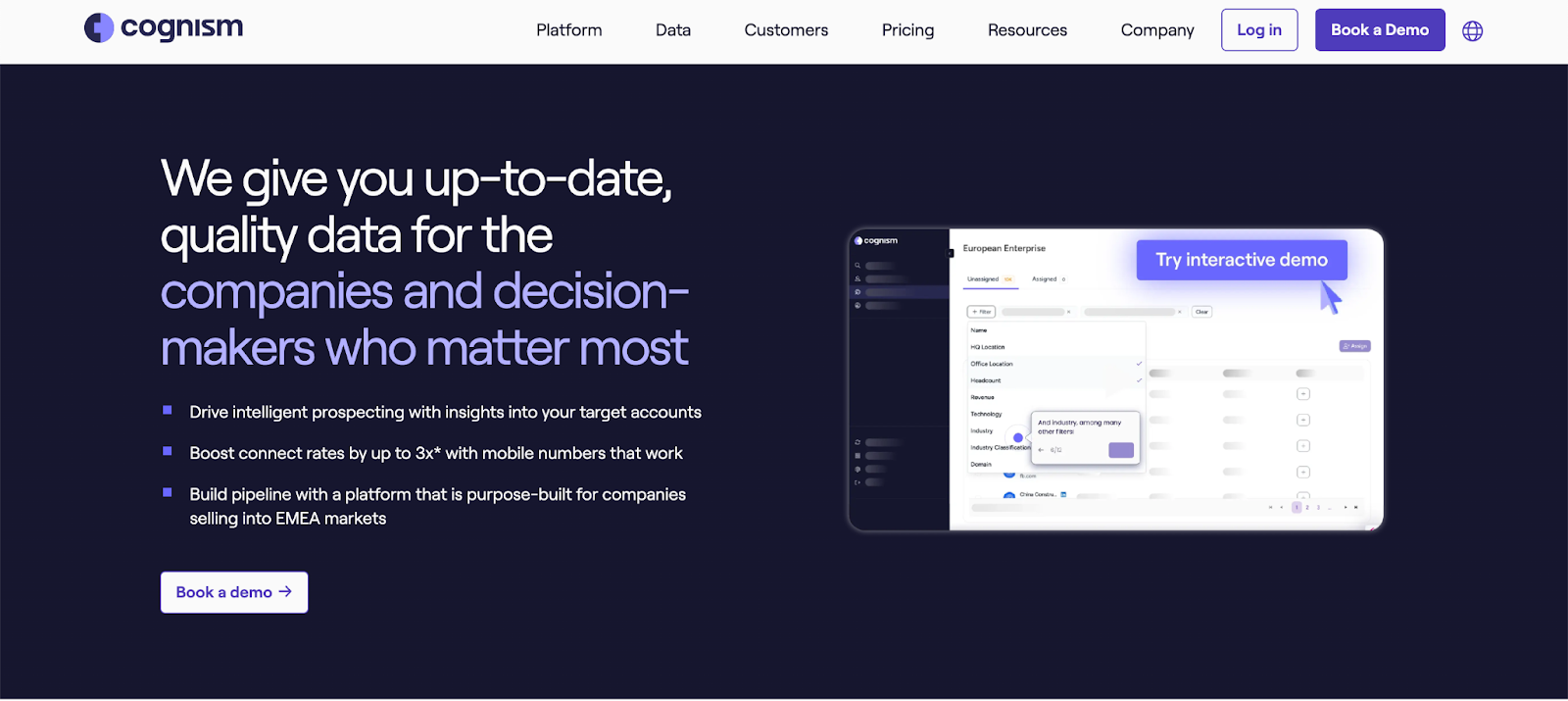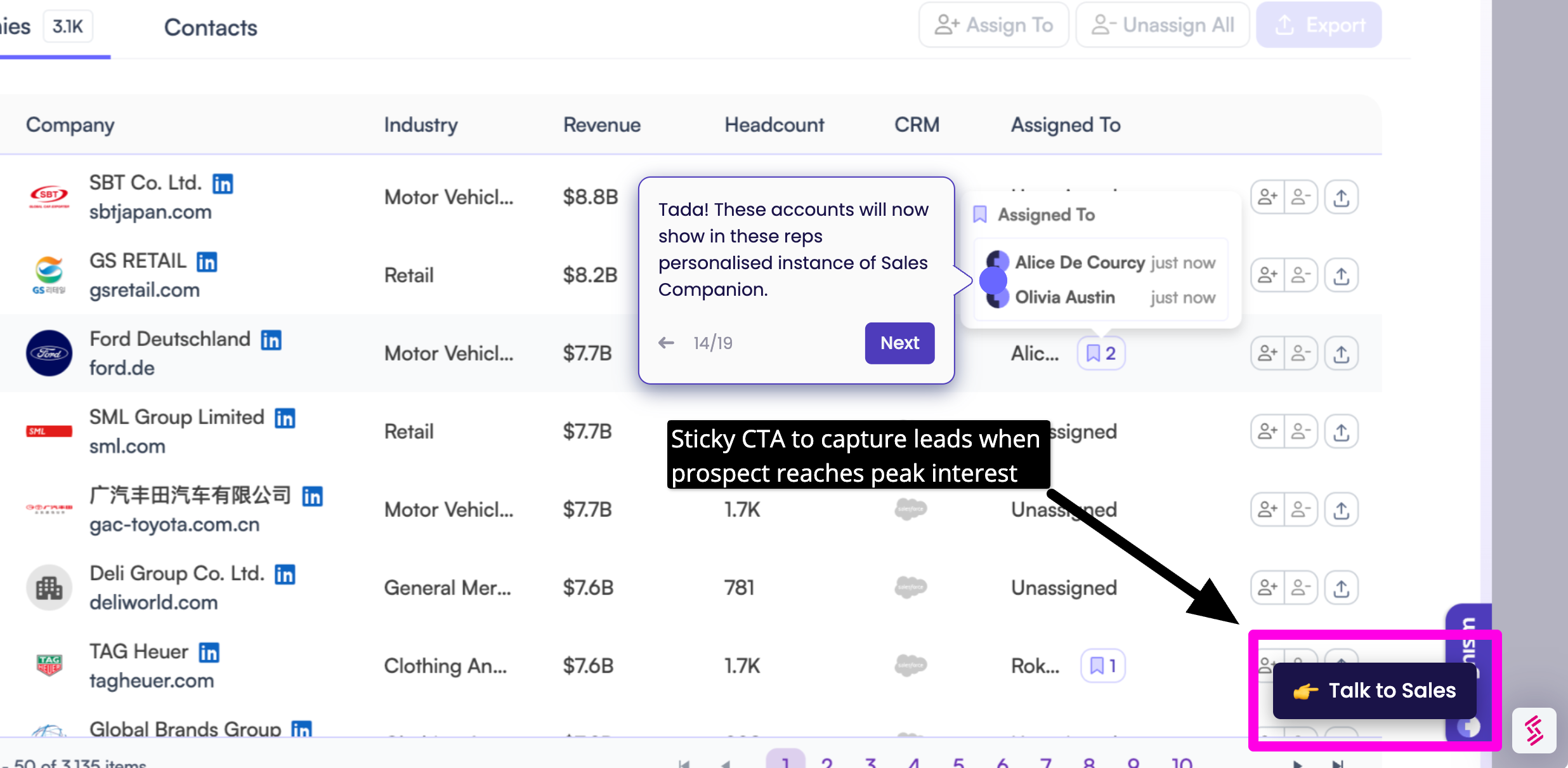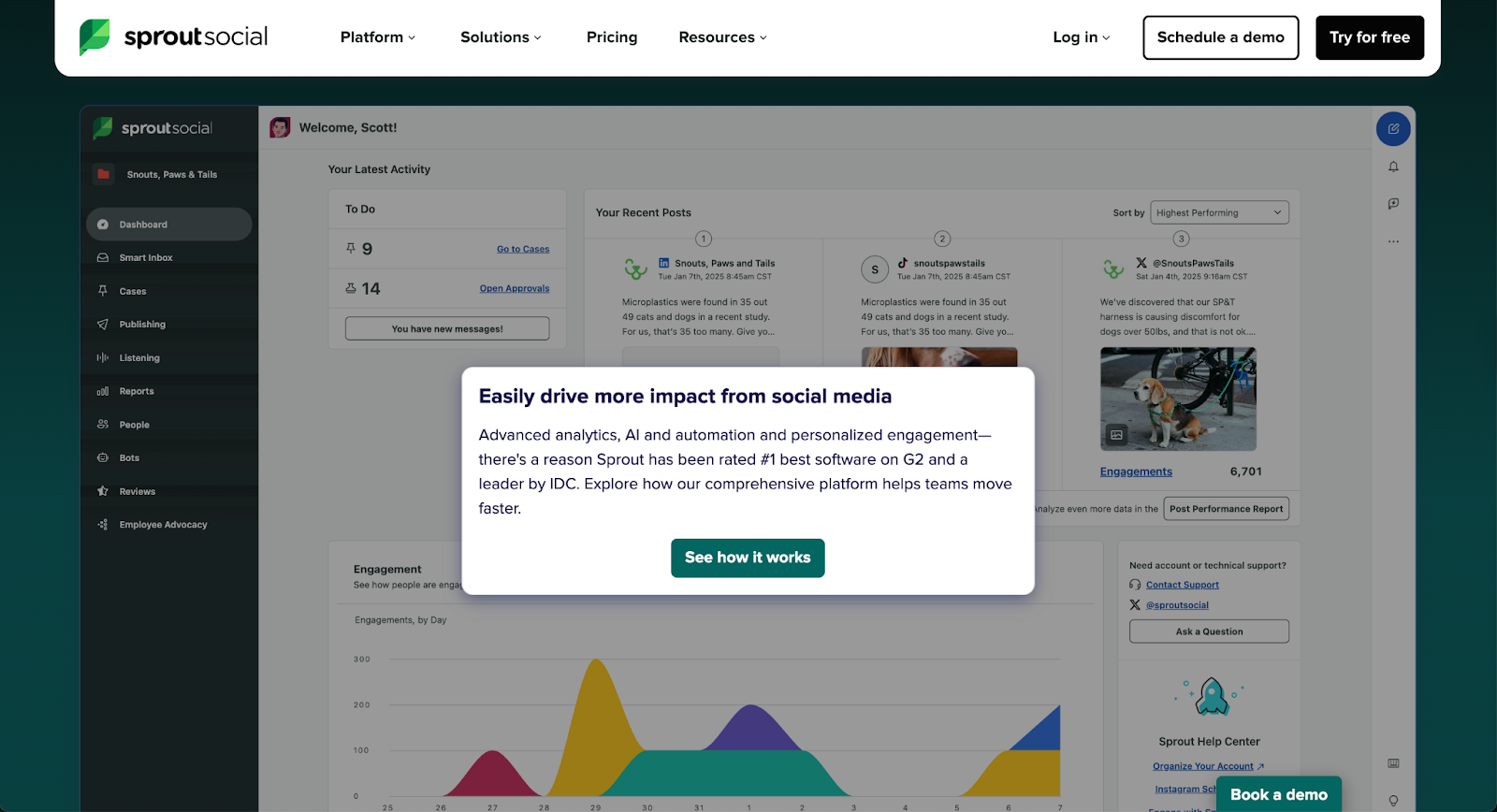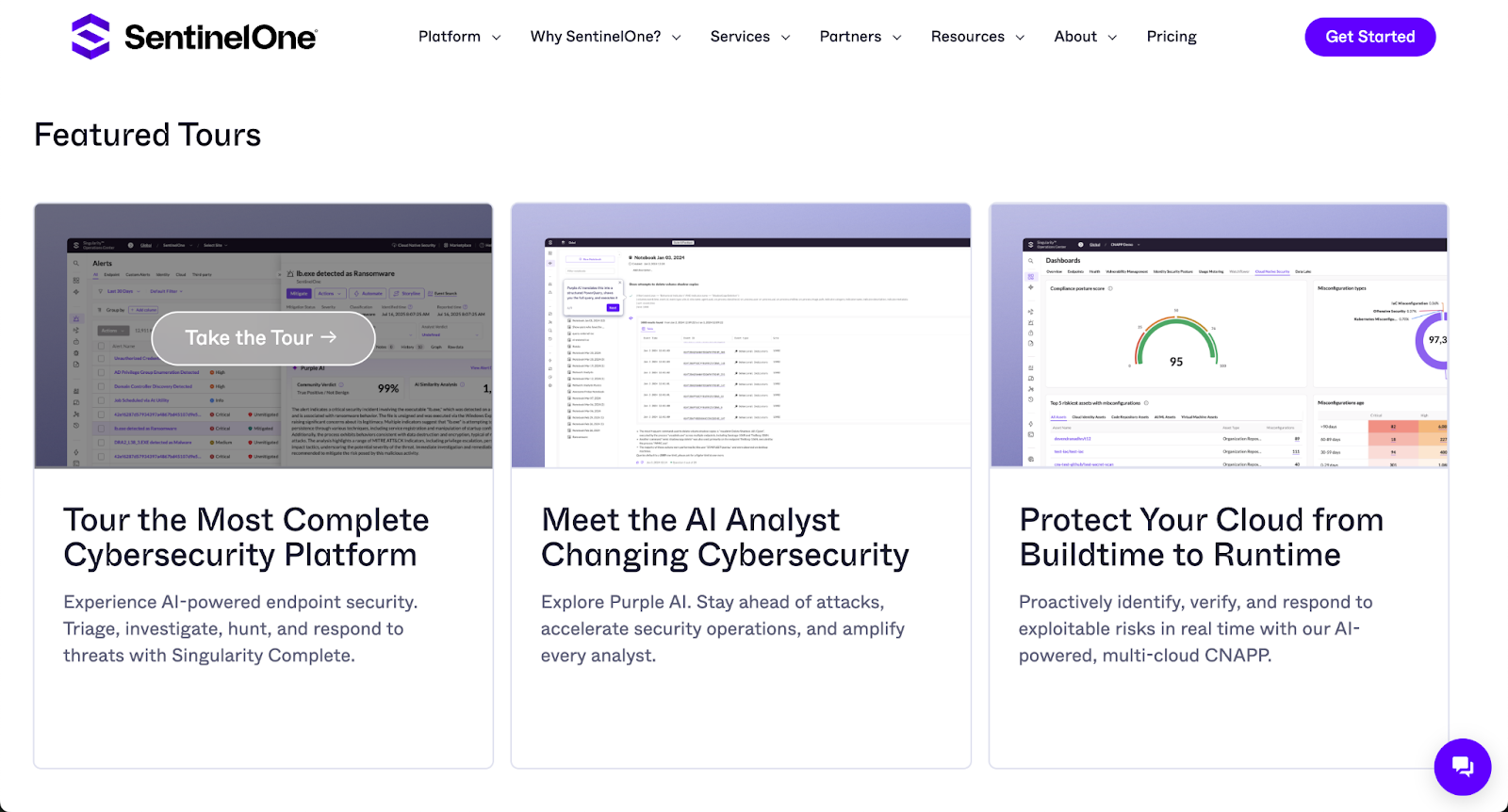
9 Best Product Marketing Tools in 2025

Heading 1
Heading 2
Heading 3
Heading 4
Heading 5
Heading 6
Lorem ipsum dolor sit amet, consectetur adipiscing elit, sed do eiusmod tempor incididunt ut labore et dolore magna aliqua. Ut enim ad minim veniam, quis nostrud exercitation ullamco laboris nisi ut aliquip ex ea commodo consequat. Duis aute irure dolor in reprehenderit in voluptate velit esse cillum dolore eu fugiat nulla pariatur.
Block quote
Ordered list
- Item 1
- Item 2
- Item 3
Unordered list
- Item A
- Item B
- Item C
Bold text
Emphasis
Superscript
Subscript

Are you struggling to find the right product marketing tool for your team?
It's hard. We get it.
Sitting at the juncture of marketing, product, sales, and customer success, product marketing has responsibilities that are diverse.
Sales teams need more decks, whereas customer success needs more customer engagement. Product needs more user interactions, whereas marketing needs more signups.
How do you pick the essential tools that measure your product marketing efforts?
Don't worry, we got you. In this article, we'll discuss 9 tools for every product marketer's need - ranging from planning to analytics.
Before we dive in, let's see what product marketing tools mean.
What Are Product Marketing Tools?
Product marketing tools help streamline various aspects of product marketing, including messaging, customer targeting, campaign management, data analysis, and performance tracking. Any tool that helps you promote and manage your products, thereby helping you perfectly execute your product marketing strategy, is considered a product marketing tool.
Top 9 Must-have Product Marketing Tools
Product marketers need to be present everywhere, all at once. So it's essential to make sure that the aspects of product or lifecycle management that can be automated are automated. With the right tools, product marketing managers can focus on the outcomes and make data-driven decisions.
In this list, you'll find the best tools for your every need — from analyzing user behavior to managing your daily workflows.
Tools for Product Tours
With saturated markets, your potential customers have a myriad of options to choose from. Product tours are a way for you to give a glimpse into what you can offer. So your prospects get a feel of your product, and see how it fits their needs.
1. Storylane
Storylane is a platform that allows you to build interactive demos for your products in a few simple steps. With features like a no-code editor, flows and checklist, interactive guides, access to demo analytics and insights, it's the perfect tool for product marketers to drive quality leads to the pipeline, by letting customers experience your product before actually purchasing.
What we love the most - The most notable feature in Storylane is HTML Recording which allows users to edit screenshots of the interactive demo. No more worrying about sensitive information leakage, or nagging your designers for edits!
Pricing - Solo - Freemium model with 3 pricing ranges
Starter - $40 per user per month
Growth - $100 per user per month
Enterprise - Customized
G2 Rating - 4.8/5

Tools for User Behaviour Analytics
Analyzing how customers use your product or website visitors behave on the site gives you a lot of insight into what's working and what could be improved.
2. Hotjar
From heatmaps and click tracking to user recordings, and feedback collection to conversion funnel analyses, Hotjar is your all-you-need tool for website analytics. As a product marketer, you can leverage Hotjar to understand how users are behaving on your site. Identify what interests them, fix areas that frustrate them, and improve the overall user experience for your website visitors.
What we love the most: With Hotjar, gain real-time feedback from visitors on specific areas of your website. With this feature, you can target specific pages or segments of your audience and understand how users experience your website.
Pricing: Freemium model with 3 pricing ranges
Plus - $32 per month for up to 100 daily sessions
Business - starting from $80 per month (500-1.7k daily sessions)
Scale - starting from $171 per month (500-1.7k daily sessions)
G2 rating: 4.3/5

3. Amplitude
Amplitude gives you insights into what product features drive business growth, with capabilities like analyzing customer behavior, visualizing where and how users convert, and real-time analysis of product usage. Notable features include segmentation, funnel analysis, cohort analysis, and user journeys, along with robust reporting features. Using Amplitude, you can craft compelling product experiences for users and boost user retention.
What we love the most: Amplitude offers a wide range of customizable charts. This makes it easy for product marketing teams to visualize the exact metrics they want to see.
Pricing (Analysis) - Starter - Free
Growth - Custom pricing
Enterprise - Custom pricing
G2 rating: 4.5/5

4. Heap Analytics
With Heap Analytics, get the full picture of the customer journey - right from acquisition to retention. Heap records every interaction your customer has had with your product (whether it is on the website or within your mobile app). Using Heap, product marketers can easily understand customer interactions, what captures your customers' attention, where they lost interest, and everything you need to understand common consumer habits. With this data, you can make insightful decisions to boost feature adoption.
What we love the most - Heap's "Journey Maps" gives crucial insights into different paths your customers take within your product. With this, you get full visibility into how your customers are using your product, making it easy to spot areas that you need to improve.
Pricing - Free - Free trial
Growth - Free trial
Pro - Custom pricing
Premier - Custom pricing
G2 Rating - 4.3/5

Tools for Productivity Enhancement
A day in the life of a product marketer is incomplete without ad-hoc tasks hitting them from all directions. But that's okay, they're great multi-taskers. However, here are a few tools that help maintain a semblance of structure.
5. Asana
Asana is an easy-to-use project management tool that helps product marketing teams collaborate and get a 360-degree view of everyone's projects. With flexible boards ranging from Calendar to Timeline, Asana allows product marketing teams to prioritize and schedule tasks/projects in different formats, like Kanban or GANTT systems. It also integrates with other marketing tools such as HubSpot and MailChimp.
What we love the most - Asana's Goals is super useful when you need to convert the company strategy into smaller actionable chunks. It makes it easier for product teams to align and move in the same direction. Universal reporting helps teams course-correct as you go.
Pricing -Basic - Free forever
Premium - $10.99 per user per month
Business - $24.99 per user per month
G2 Rating -4.3/5

6. Slack
Slack is a SaaS business' favorite communication tool. It offers one collaborative workspace where product marketers can work with multiple people at the same time. Whether it's collaborating with the product team for product launches or brainstorming GTM strategies, create a channel on Slack and get started. With excellent file-sharing capabilities, the ability to set reminders, and start huddles for a voice or video chat, it's the perfect collaborative tool for product marketers.
What we love the most - Slack allows users to integrate with third-party apps to set up real-time notifications. So if you have an email marketing campaign set up on a marketing automation platform, you can set up Slack notifications for when prospects open, click, or reply to your emails.
Pricing - Pro -$2.90 per user per month
Business+ - $5 per user per month
Enterprise - Custom pricing
G2 Rating - 4.5/5

7. Trello
As they rightfully say, Trello is a productivity powerhouse with which teams can organize their product marketing activities into lists, boards, or cards and get a clear view of who's working on what task. In-built templates also allow teams to adopt Kanban models for various kinds of activities like Content Marketing Catalogs or Social Media Marketing Boards.
What we love the most - Butler, Trello's built-in automation, product marketing managers can set automation rules for manual activities. You can set triggers and actions to be performed and Butler takes care of the rest. Butler also integrates with tools like Slack and Jira to further streamline your marketing workflows.
Pricing - Freemium model with 3 pricing ranges
Standard - $5 per user per month
Premium - $10 per user per month
Enterprise - $17.50 per user per month
G2 Rating - 4.4/5

Tools for Marketing Automation
With their foot in every camp, it's impossible for product marketers to stay on top of all marketing campaigns. Marketing automation software helps product marketing managers streamline their activities, enhance efficiency, and propel personalized communication at scale.
8. Intercom
Intercom is a powerful tool that offers end-to-end customer service solutions. With AI-powered Helpdesk, Bot, and Proactive Support, product marketers can leverage friendly intercom pricing for all customer engagement and keep them happy. Intercom provides facilities to contact customers via email or set up Posts within the app. This is particularly helpful for product or feature announcements.
"Intercom is my go-to app to send product announcements and email campaigns. And is a great tool for any product marketer, especially those of us who need to be a one-person army!
As a part of an onboarding and training initiative in my previous roles, I was in charge of executing a 12-part product blog series. These blogs were subsequently distributed through our weekly product training newsletters.
Intercom helped me execute the entire 12-part email series at scale, ensuring that our customers remained engaged throughout (38% average open rate). I leveraged the platform's user segmentation and customizable templates to effortlessly tailor emails to specific segments of the audience such as newly onboarded users, disengaged users, etc. And lastly, the intuitive interface truly improves the quality of the work and makes sending email campaigns a creative and fun endeavor rather than a chore!"
- Soundarya Murugaiyan, Senior Product Marketer at Infeedo
What we love the most - Intercom's customer engagement platform allows users to contact users via email, chat, in-app banners, and posts. Powerful email analytics help marketers get actionable insights into who engaged with your messaging and let you take the right next step for them.
Pricing:
Starter - $74 per month
Pro - Custom Pricing
Premium - Custom Pricing
G2 Rating - 4.5/5

9. HubSpot
HubSpot is an all-in-one sales and marketing platform. With HubSpot, you can learn more about your customers, plan marketing campaigns for different types of buyers, and gather important info about your customers.
You can create web pages, email campaigns, and more using the tool's templates. One cool thing is that you can see all your potential customers and people who are already interested in your stuff. You can easily figure out how to turn these potential customers into real ones and know when to get in touch with them.
What we love the most - Within HubSpot, you can create custom workflows to identify high-intent prospects. You can score prospects based on certain criteria to determine their interest in your business. For example, if your prospect visits your pricing page, that means they show high intent and need to be contacted soon.
Pricing - Starter - $18 per month for 1000 marketing contacts
$800 per month for 2000 marketing contacts
G2 Rating - 4.4/5

Also, check out guide to product demo
How to Choose the Best Product Marketing Tools
Now that we know there's a wide range of tools available for product marketing teams, let's see how you can zero in on the perfect tool for you.

- Define your objectives
Before weighing your options, you need to establish a purpose for the tool. Are you looking to increase awareness, generate leads, boost conversions, or retain customers? The tool you're looking for will vary based on your goals. - Specify your budget
Budget is the second most important thing to factor in before you look for a tool. It's essential to determine a budget that maintains profitability while justifying tool investments to stakeholders. To achieve this, align your costs with the benefits, compare tool pricing and plans meticulously, and prioritize transparent, flexible, and scalable models. - Research, research, research
Next, dive into the trenches and evaluate your options. Look at their features and functionality and assess what suits you best. Some questions to consider while evaluating your tools:
Is the tool customizable and scalable? How easy is it to use? What is the level of reliability and security these tools offer? How frequently do they undergo updates and enhancements? Is their support team readily available?
Customer feedback is a great way to assess if a tool is good. Hit review sites like G2 or Capterra for user feedback. Social media sites are the gems of consumer understanding. LinkedIn and Quora also contain valuable insights into how users feel about the tool. - Test your options
Getting a first-hand feel of the tool will help you know if it is the right fit for your needs. You can explore a tool's maximum potential by signing up for free trials, getting a demo of the product, or trying sandbox environments and seeing how they perform.
This way, you can get second opinions from your team members as well. - Finalize and optimize your tool
When you finally conclude on a tool after a relentless search, make sure to optimize and align it toward your product marketing goals. You need to regularly monitor and measure the performance of your tools to ensure they're adding value to your process.
What are the benefits of product marketing tools?
There are lots of positives to employing product marketing tools for a startup business. They help companies talk about their products in a better way. These tools make it easier to tell customers about products by keeping the messages consistent across different platforms. They also help figure out who the best people are to show the product to and allocate marketing resources to the right channels.
These tools save time by doing tasks like scheduling when messages will be sent. They look at data to see how well the messages are performing, which helps companies make smarter choices in their marketing activities. The tools keep getting better with updates, helping businesses keep up with the newest trends. Overall, product marketing tools help companies share their products effectively, reach more people, and drive more pipeline.
In A Nutshell
As a product marketer, your goal is to put your solution in the forefront of the minds of your prospects. With the right tools up your sleeve, you can focus your full attention on translating the value of your product to the target audience.
Q. What is the best tool for market analysis?
Among the myriad market analysis tools available, Semrush's Market Explorer stands out with its robust features, including View TAM, target audience demographics, and market share data. Semrush lets you track your competitor's SEO strategy, backlink strategy, social media, content marketing, and PPC strategies, as well.
Heading 1
Heading 2
Heading 3
Heading 4
Heading 5
Heading 6
Lorem ipsum dolor sit amet, consectetur adipiscing elit, sed do eiusmod tempor incididunt ut labore et dolore magna aliqua. Ut enim ad minim veniam, quis nostrud exercitation ullamco laboris nisi ut aliquip ex ea commodo consequat. Duis aute irure dolor in reprehenderit in voluptate velit esse cillum dolore eu fugiat nulla pariatur.
Block quote
Ordered list
- Item 1
- Item 2
- Item 3
Unordered list
- Item A
- Item B
- Item C
Bold text
Emphasis
Superscript
Subscript
.svg)
Make buying easy with Storylane
Chat with our demo expert to find out how 2500+ companies use Storylane to drive more revenue

.webp)






